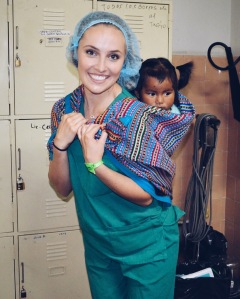This was a hard week on the surgical ward. We lost a patient last weekend, and although I was introduced to his case later in his course of therapy and had limited interactions with him, his passing has complicated the narrative I have always told myself about medicine and my career as a physician.
In Being Mortal, Atul Gawande explores these narratives in depth, and I credit his work as being my first in-depth exposure to the subtleties of the quality vs quantity of life debate. Living it in person, however, added to the complexities in a whole new way. Is an extensive ICU stay worth the inflicted suffering for our patients if it gives them a slight chance at survival? What does that survival look like? How much extra suffering are our patients enduring having to fight for their lives alone in an ICU due to the pandemic our society is facing, just to pass away alone and in pain? What is the number needed to treat vs the number needed to harm, and how do we define “treat” and “harm”? I’ve been searching for a way to quantify these physical, emotional, and spiritual factors on a cosmic scale that somehow will allow me to navigate my career as a physician and working with patients who are suffering and dying, and not surprisingly, there is no way to quantify these very qualitative factors. Even if there was a way to quantify it all, I wouldn’t want to be the person to tell the patient “the suffering with this treatment isn’t worth it, it’s your time to pass”, because as physicians we want to help, to heal, to do, to fix, and to do no harm. This flies in the face of who we are at our core. Perhaps I need to spend some time on a palliative care ward just to learn these skills and help patients navigate death as comfortably as we help patients navigate health, disease, illness, and injury.
I don’t foresee an answer to these questions, so that leads me to my next question: how do we appropriately grieve in a healthy way when our patients suffer or die, and how do we make space for our pain and grief while continuing to function in this field? No one talked about the passing of our patient this weekend. When everyone was updated, there were a few hushed “awh”s throughout the team, and then everyone continued with their day. Let me assure you, it isn’t because no one cared. Everyone cared. Every single one of us saw this patient every single morning, and we all had varying degrees of emotional investment in this patient. But we all had 12+ hours of patients in front of us, and all of them deserved the same amount of time, energy, and attention as we gave to this patient during his time in the ICU. When there is so much suffering and death all around us, how do we maintain our human compassion, grieve in a healthy way, and not become overwhelmed with the gravity of it all? I don’t think this is something that can be answered, per se. I think it’s a process, a journey, an experience, a lesson. We learn how to live in that humble space between life and death, and we continually learn how to balance it all by the grace of God.









Staying detached enough to be able to do your job while still retaining enough compassion is one of the hardest parts of being a physician. We all struggle with it from time to time. Like you said, it’s a process. I’m sorry about the loss of your patient, that’s never easy. Hang in there.
Maggie
LikeLike